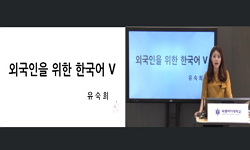Recently numerous studies showing that happy people are flourishing in various life domains are actively conducted. However, most of the research on benefits of subjective well-being (happiness) is conducted in individualist cultures (e.g., US, Wester...
http://chineseinput.net/에서 pinyin(병음)방식으로 중국어를 변환할 수 있습니다.
변환된 중국어를 복사하여 사용하시면 됩니다.
- 中文 을 입력하시려면 zhongwen을 입력하시고 space를누르시면됩니다.
- 北京 을 입력하시려면 beijing을 입력하시고 space를 누르시면 됩니다.
주관적 안녕감의 장기적 결과
한글로보기https://www.riss.kr/link?id=G3734042
- 저자
-
발행기관
-
-
발행연도
2012년
-
작성언어
Korean
-
주제어
건강 3 ; relational success ; consequences of happiness ; subjective well-being ; social success ; undergraduate students ; objective success ; happiness ; longitudinal study ; high school students ; 5 ; 7 ; 10/경제수준 4 ; 15 ; 21/관계 만족도 7 ; 11-12/긍정적 정서 3 ; 8-10 ; 12 ; 15-18/낙관성 14/따뜻함 8-9 ; 17/물질주의 7 ; 14 ; 16 ; 20/부정적 정서 3 ; 8-10 ; 15-16/사회비교 16/삶에 대한 만족도 3 ; 8-9 ; 15 ; 18/삶의 의미 4/소속감 7 ; 16/스트레스 8 ; 11 ; 13 ; 16 ; 17/시민의식 7 ; 10/신뢰 7 ; 14/신체적 매력 8-9/외로움 7 ; 14 ; 16-17 ; 20/유머 17-18/이성관계 12/이타성 18/인기 8 ; 13 ; 17-18/자기 존중감 4 ; 7 ; 16/종단연구 4 ; 13/주관적 안녕감 3-4 ; 7 ; 11 ; 15-16/집단주의 문화 4 ; 19/체면 7 ; 16 ; 20/친사회적 행동 5 ; 7 ; 10/행복에 대한 태도 3 ; 14/학점 5 ; 7 ; 9 ; 14-16
-
자료형태
한국연구재단(NRF)
-
0
상세조회 -
0
다운로드
부가정보
다국어 초록 (Multilingual Abstract)
Recently numerous studies showing that happy people are flourishing in various life domains are actively conducted. However, most of the research on benefits of subjective well-being (happiness) is conducted in individualist cultures (e.g., US, Western European countries), and empirical research on how happiness affect Korean people’s private and social life is practically none. The current research collected data from Korean samples (high school and university students, and office workers), who belong to collectivist culture.
We followed the participants for 18 months and collected data through four waves to investigate the effect of initial happiness on people’s later life outcomes. Variables in three different aspects were measured: Objective, social, and psychological aspects. We also collected data from informants. Replicating previous research findings, our data showed that initial happiness predicted flourishing in all three aspects in later life.
Variables in objective aspect: Physical attractiveness had no correlation with happiness. However, happiness predicted later achievement. Happier students in the first wave reported higher G.P.A. in third wave and fourth wave. Happiness also predicted health related variables. Happier people in the first wave reported better general health and less pain. Also they were less likely to visit hospital, catch a cold, experience depression, have insomnia, and feel suicidal. Happiness also predicted citizenship. Happier people in the first wave tended to do more volunteer works, donations, and recycling.
Variable in social aspect: The happier people in the beginning of the research reported higher satisfaction of social relationships in general, with family, friends, and coworkers. Also happiness of the first wave was both correlated with the quantity and quality of friendships. Happier people were more likely to be in committed relationships with romantic partners, and to report higher romantic-relationship satisfaction. They also had intensions of having long-term relationships.
Variables in psychological aspect: First wave happiness predicted fourth wave self-esteem, sense of belonging, general trust, and satisfactions of various life domains. Initially happier people were less likely to be materialistic, lonely, conscious of face, and comparing self with others, that are known to be harmful to happiness. Also, happier people reported having less stress from various domains including both internal features (e.g., personality and aptitude) and external features (e.g., money and appearance).
Informants’ data: Initially happier people were more likely to give positive impressions to people around them. Initially happier office workers were more likely to be evaluated as being a good listener, a would-be grand person, popular, and sensitive to the boss’s feelings. They were also positively evaluated from their boss (i.e., more earnest and altruistic). Likewise, initially happier high school students were evaluated more positively from their teachers (i.e., having a good friendship and leadership).
The current research showed that happiness cause positive long-term consequences in various aspects of life, and that is not limited to the individualist cultures, but also true in Korea, a collectivist culture. Also as a longitudinal study, following the participants for 18 months, it also showed semi-causal relationships between happiness and later benefits to the individuals. Recently there is a global trend to apply the happiness level of people to the national indicator of life quality, rather than using only economic indicators, such as G.D.P. The main finding of the current research is that ‘happy people are in better social relationships, better students or citizens, and performing better at school and work’ The result has big implications on national policy-making and education.
국문 초록 (Abstract)
최근, 행복한 사람들이 여러 영역에서 성공적인 삶을 영위한다는 연구들이 활발히 진행되고 있다. 그러나 이러한 연구들의 대다수는 개인주의 문화권에 속하는 미국과 서유럽 국가들의 참...
최근, 행복한 사람들이 여러 영역에서 성공적인 삶을 영위한다는 연구들이 활발히 진행되고 있다. 그러나 이러한 연구들의 대다수는 개인주의 문화권에 속하는 미국과 서유럽 국가들의 참가자들을 대상으로 이루어진 것으로, 한국인에게 행복이 사회적, 개인적으로 어떠한 영향을 주는지에 대한 정보는 절대적으로 부족한 실정이다. 이에 본 연구는 집단주의 문화권에 속하는 한국의 고등학생, 대학생, 직장인 집단을 대상으로 1년 반 동안 총 4회에 걸쳐 반복적으로 추적 조사함으로써 초기 행복과 주관적 안녕감이 이들의 향후 삶에 어떠한 결과를 산출하는지 검증하고자 했다.
객관적 측면, 사회적 측면, 그리고 심리적 측면에서 결과 변인들을 측정하였고, 주변 사람들로부터의 평가 또한 분석하였다. 1차시기의 행복수준은 이후의 객관적, 사회적, 심리적 변인 모두를 잘 예측하였다.
객관적 변인: 신체적 매력은 행복과 관련이 없는 것으로 나타났으며, 성취와 관련한 영역에서는 1차 시기에 행복할수록 이후에 학점이 높은 것으로 나타났다. 건강과 관련하여 초기의 행복은 이후 전반적인 건강과 더 적은 통증을 예측했고, 초기에 행복했던 사람은 질병으로 인한 병원 방문 횟수, 감기, 자살에 대한 생각, 우울, 불면증 등이 더 적은 것으로 나타났다. 시민의식에 있어서도 초기에 행복한 사람은 기부, 봉사활동, 쓰레기 분리수거 등을 더 많이 하는 것으로 나타났다.
사회적 변인: 1차 시기에 행복한 사람이 3-4차 시기에 전반적인 대인관계, 가족, 친구, 직장 내에서의 관계만족도가 모두 높았다. 또한 1차 시기의 행복은 친구 관계의 양적인 면과 질적인 면 모두를 예측했다. 이성관계에 있어서도 현재 행복한 사람이 이후에 이성친구와 더 많이 교제하고 관계 만족도가 높으며 관계를 장기적으로 지속할 의향이 더 높았다.
심리적 변인: 1차 시기에 행복할수록 4차 시기에 전반적으로 자신과 타인을 긍정적으로 지각하고 신뢰하며, 삶의 여러 영역에 대한 만족도가 전반적으로 높은 것으로 나타났다. 또한 초기에 행복했던 사람들은 부정적인 특성으로 알려진 사회비교, 체면 의식, 물질주의, 외로움은 낮게 경험하는 것으로 나타났다. 또한, 영역별 스트레스를 살펴본 결과 관계, 내적 특성(성격, 적성 등), 외적 조건(돈, 외모 등)에 걸쳐 1차 시기에 행복한 사람들은 스트레스를 더 적게 경험하였다.
정보제공자 변인: 같은 집단 내의 사람들로 하여금 서로 평가하도록 하였는데, 그 결과 초기에 행복했던 사람은 1년 뒤 같은 학교나 직장 사람들로 하여금 긍정적인 인상을 주는 것으로 나타났다. 직장인 집단에서 1차 시기에 보다 행복했던 사람은 3차 시기에 동료 평가에서 경청을 잘 하고, 상사의 기분을 잘 맞추며, 인기가 많고, 큰 인물이 될 사람으로 지목되었다. 직장 상사 평가 또한 1차 시기에 행복했던 사람이 3차 시기에 상사로부터 성실하고, 이타적이라는 평가를 받았다. 고등학생 집단에서도 마찬가지로, 1차 시기에 행복했던 사람들이 3차 시기에 교사 평가에서 교우관계가 좋고, 리더십 있는 학생으로 평가되었다.
본 연구는 행복이 여러 영역에 긍정적인 결과 및 성과들을 산출하는 경향이 비단 개인주의 문화권인 서양에서만 나타나는 현상이 아니라, 집단주의 문화권에 속하는 한국에서도 일관적으로 나타난다는 것을 보여주었다. 또한 이를 1년 반에 걸친 장기 종단 연구 방식으로 수행하여 행











